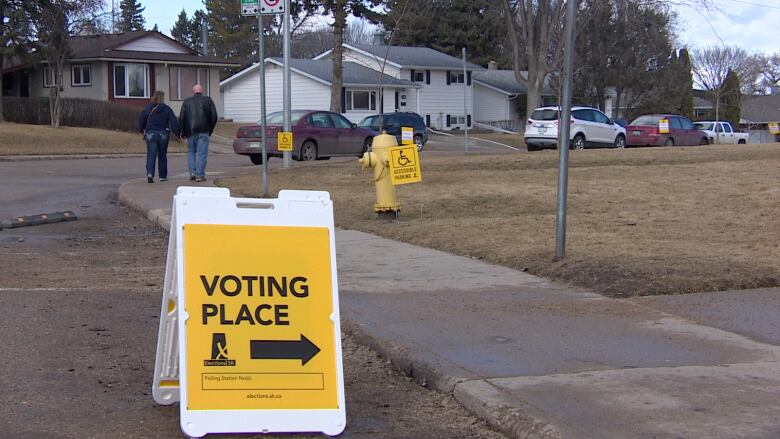Latest Vote Compass report finds economy, environment top election concerns heading toward Sask. election day
Respondents to online engagement tool were asked, 'What issue is most important to you in this election?'

The economy and the environment toppedthe list of concerns forSaskatchewan respondents inthe latest Vote Compass report.
CBC'sVote Compass is a voter engagement tool lets people answer a series of questions to determine where they sit on the political landscape with respect to political parties, as Saskatchewan heads toward a provincial election this month.
Results are not intended to be, and should not be interpreted as, voting advice, nor as a prediction as to which party a given user intends to vote for. It is rather an entry point into a discussion of party positions on a suite of issues relevant to the election.
The canvased parties include the Saskatchewan Party,the NDP and the Progressive Conservative Party.
Respondents were asked the question, "What issue is most important to you in this election?"
Thirty-three per cent of Vote Compass respondentsidentified the economy as the top issue. That's down from 49 per cent in2016.
Concern for the environment came in second, and was flagged as the top issue by13 per cent of respondents, up from seven per cent in 2016.
The response to the COVID-19 pandemic (12 per cent) and health care (11 per cent) were the third and fourth most-often cited top issues.
Saskatchewan Party voters were found to be much more likely to choose the economy as the most important issue, at 51 per cent. Nine per cent of respondents who said they wereNDP voters picked the economy as the top issue.
Voter Compass also found that respondents who are NDP voters were much more likely to identify the environment as a concern (22 per cent) than those who identified themselves as Saskatchewan Party voters (eight per cent).
Both women and men cited the economy as the top issue. Health care was the second-most cited issue for female respondents, while for males, it was the environment.
The other issues canvassed, listed in order of importance, were:
- Education.
- Labour.
- Social justice.
- Energy.
- Social welfare.
- Crime.
- Transportation.
- Indigenous issues.
- Government operations.
- Telecommunications.
- Culture.
- Housing.
Other findings from the Sept. 28 to Oct. 1 Vote Compass report:
- Female respondents were more likely to vote for the economy and health care than male respondents.
- Those in the 50-64 age range were most concerned with the economy.
- Respondents in the18-29 age range were most concerned with the environment.
Saskatchewan voters go to the polls on Oct. 26.
About Vote Compass
Developed by a team of social and statistical scientists from Vox Pop Labs, Vote Compass is a civic engagement application offered in Saskatchewan exclusively by CBC/Radio-Canada. The findings are based on 2,302 respondents who participated in Vote Compass from Sept. 28, 2020 to Oct.1, 2020, who answered the open-text question: "What issue is most important to you in this election?" Responses were aggregated into categories using a natural language processing algorithm.
Unlike online opinion polls, respondents to Vote Compass are not pre-selected. Similar to opinion polls, however, the data are a non-random sample from the population and have been weighted in order to approximate a representative sample. Vote Compass data have been weighted by gender, age, education, household income, region, first language and partisanship to ensure the sample's composition reflects that of the actual population of Saskatchewan according to census data and other population estimates.












_(720p).jpg)


 OFFICIAL HD MUSIC VIDEO.jpg)
.jpg)



























































































